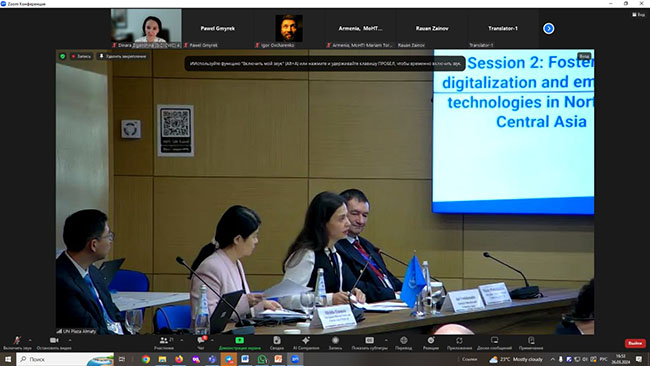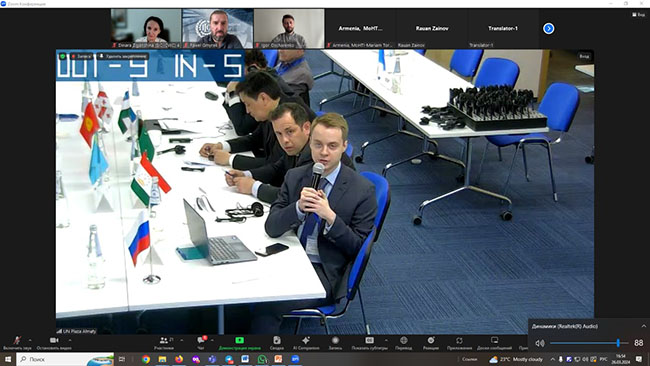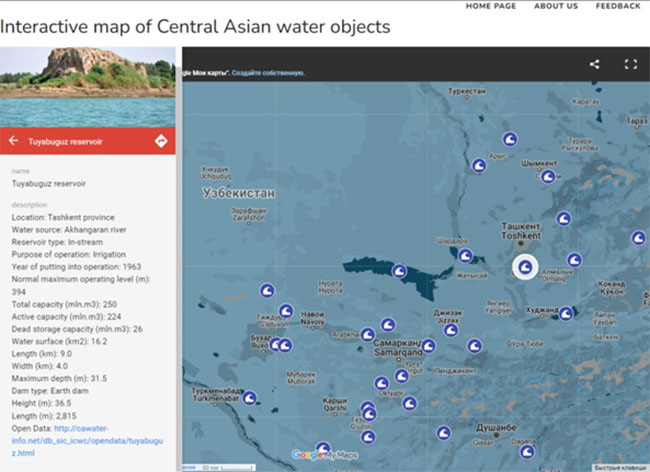No. 12 (456) March 2024
EXPERT GROUP MEETING ON HARNESSING INNOVATIVE TECHNOLOGIES TO ADVANCE GREEN TRANSFORMATION FOR SUSTAINABLE DEVELOPMENT IN NORTH AND CENTRAL ASIA
The expert group meeting on harnessing innovative technologies to advance green transformation for sustainable development in North and Central Asia was held on March 26-27, 2024.
The event was organized by the Subregional ESCAP Office for North and Central Asia and the Ministry of Digital Development, Innovations and Aerospace Industry of the Republic of Kazakhstan. The meeting was attended by representatives of ministries responsible for science, technology and innovation policy-making, experts in digital development, sustainable transport and climate-smart agriculture, as well as representatives of international, regional and community organizations.

The Expert Group Meeting examined innovation and technology- related strategies and assessed their impact on digital development, sustainable transport, and climate-smart agriculture to address persistent development challenges and negative impacts of multiple crises in North and Central Asia. Relevant recommendations were made for policymakers.
The meeting was organized in a series of sessions:
- Review of science, technology and innovation-related policies to address the development challenges of landlocked developing countries (LLDCs) in North and Central Asia
- Promoting digital transformation and regional cooperation in North and Central Asia
- Enhancing digitalization and green transformation of transport and economic corridors in North and Central Asia
- Harnessing innovative technologies for sustainable development and climate-smart agriculture in North and Central Asia.

Dinara Ziganshina, Director of SIC ICWC, reported at the session "Promoting digital transformation and regional cooperation in North and Central Asia" with her presentation "The Regional Information System of ICWC: Achievements and Challenges for the Future".
The information system developed by SIC ICWC allows assessing different dimensions of land and water use efficiency in the Aral Sea basin, with the possibility of forecasting, which contributes to sustainable management and monitoring of the use of all types of water. Currently, the information system is being updated by expanding the range of analytical information (water quality indicators, hydropower operation, assessment of climate impact on water resources and water demand) and its interpretation (visualization via GIS-maps, atlases, etc.).
